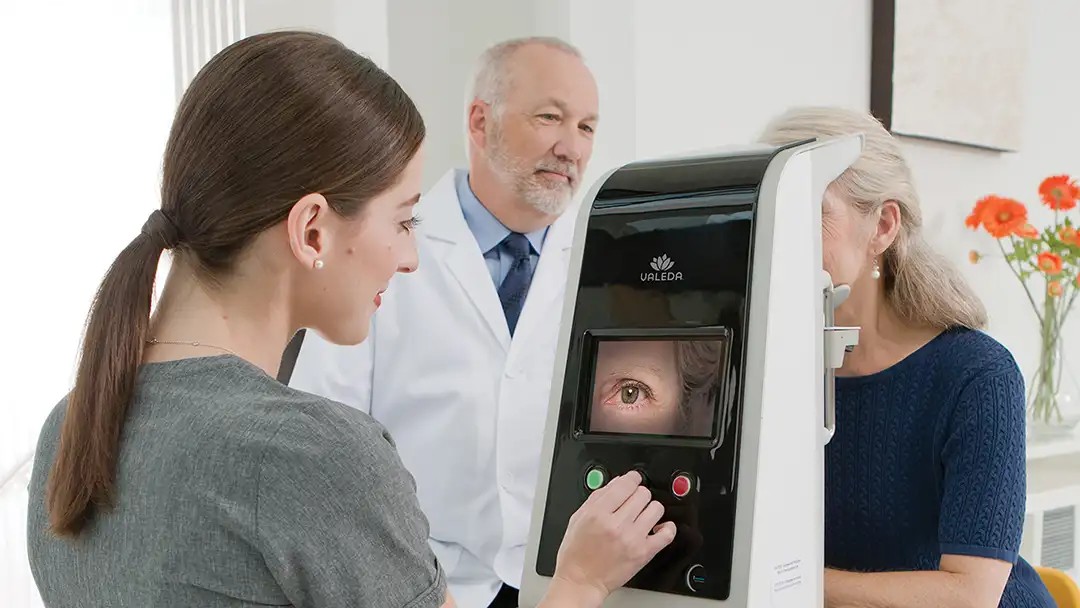
Learn about genes that are closely associated with age-related macular degeneration, and whether genetic testing is currently recommended.
Age-related macular degeneration (AMD) is a common disease that can affect central vision (used for reading and driving) in people aged 55 and older. Since people with a close relative who has AMD have a somewhat increased risk of getting the disease, genetic studies have been done to determine which genes contribute to the increased risk. The two genes that are most closely associated with the disease are called complement factor H (CFH) and ARMS2/HTRA.
Two Genes
The Complement Factor H Gene
CFH is a regulator of the complement pathway, which is part of the immune system. The DNA sequence variants associated with AMD risk are thought to lead to increased complement pathway activation, causing the immune system to attack the retina. These findings led to clinical trials focused on inhibiting the complement pathway in AMD patients. Several of these trials have failed to show any benefit, but one recent phase two trial by Apellis showed slower progression of the geographic atrophy, the advanced form of dry AMD, among patients taking a complement (factor C3)-inhibiting drug. A phase III clinical trial will soon test this drug.
The ARMS2/HTRA Gene
The function of ARMS2/HTRA is not yet understood. More research is needed to develop a therapy related to these genes.
Genetic Testing: Is it Helpful?
Genetic testing for CFH and ARMS2/HTRA is available for patients, but the question is, how would it be helpful? One possibility is that in the future, specific therapies will be found to work only in patients with certain genetic variants. However, there is no definitive evidence that genetic information can help ophthalmologists tailor treatments for AMD patients.
The two treatments that have been shown in clinical trials to be effective for AMD are: Age-related Eye Disease Study (AREDS) vitamins and, for the wet form of AMD, the anti-VEGF drugs (Beovu®, Avastin®, Eylea®, and Lucentis®). Reviewing the AREDS Study data, a couple of publications have recommended that the AREDS formula should be adjusted based on the patients’ genetic variants in CFH and ARMS2/HTRA. However, the investigators at the National Institutes of Health who performed the AREDS studies have enlisted three independent groups of statisticians, all of whom found no convincing differences among patients with different genetic variants that would guide the use of AREDS vitamins or their individual ingredients.
Another potential rationale for genetic testing could be to estimate an individual’s risk of getting AMD. However, at the current time, there isn’t much that would be done with that information, other than to recommend behaviors that diminish AMD risk:
- Stop smoking
- Eat a diet rich in vegetables and fruits
- Eat fish twice a week, especially salmon, sardines, or mackerel
- Take AREDS vitamins if recommended by your ophthalmologist
These measures are helpful for general health, and should not be limited only to patients with higher genetic risk for AMD.
About BrightFocus Foundation
BrightFocus Foundation is a premier global nonprofit funder of research to defeat Alzheimer’s, macular degeneration, and glaucoma. Since its inception more than 50 years ago, BrightFocus and its flagship research programs—Alzheimer’s Disease Research, Macular Degeneration Research, and National Glaucoma Research—has awarded more than $300 million in research grants to scientists around the world, catalyzing thousands of scientific breakthroughs, life-enhancing treatments, and diagnostic tools. We also share the latest research findings, expert information, and resources to empower the millions impacted by these devastating diseases. Learn more at brightfocus.org.
Disclaimer: The information provided here is a public service of BrightFocus Foundation and is not intended to constitute medical advice. Please consult your physician for personalized medical, dietary, and/or exercise advice. Any medications or supplements should only be taken under medical supervision. BrightFocus Foundation does not endorse any medical products or therapies.
- Eye Tests
- Genetics
- Prevention









